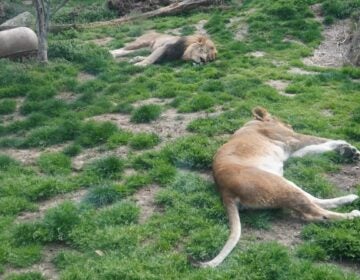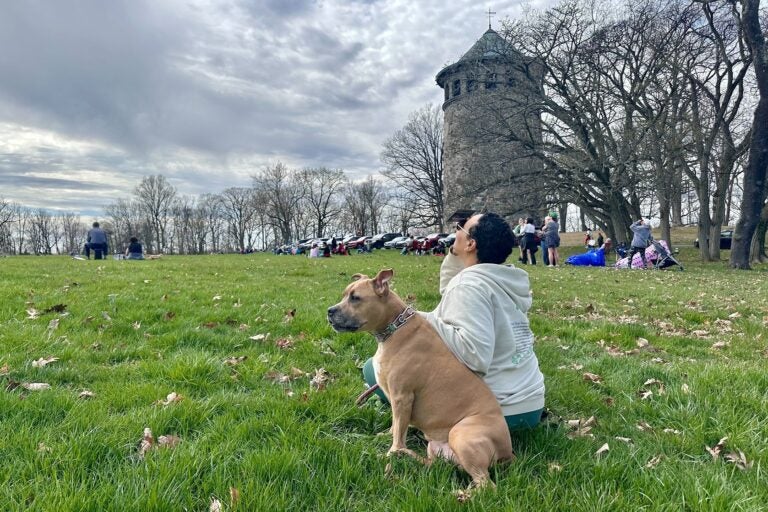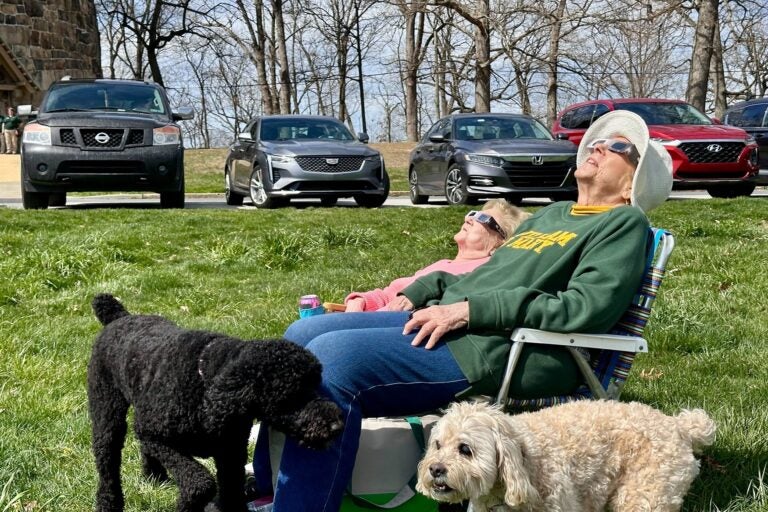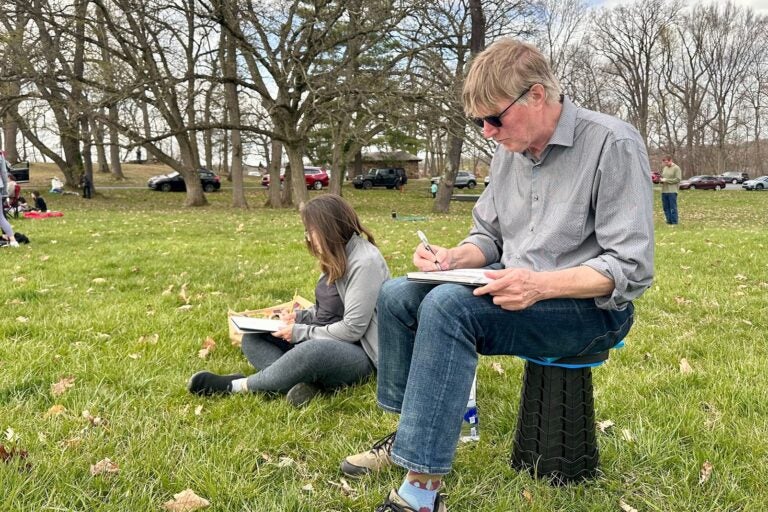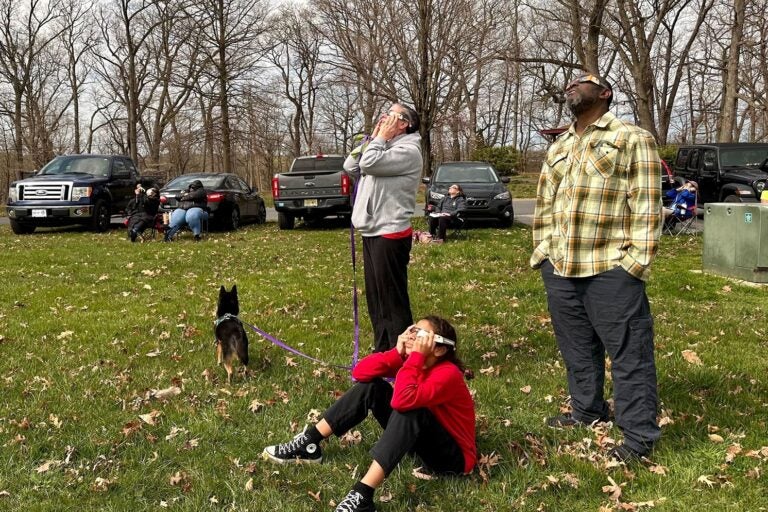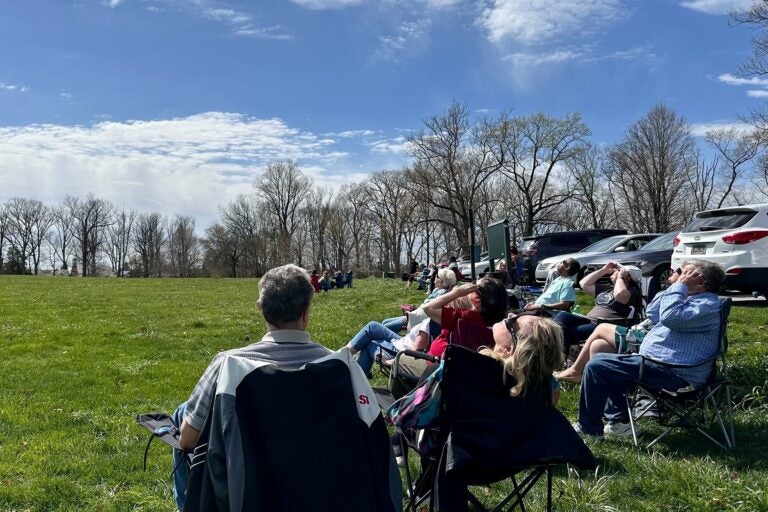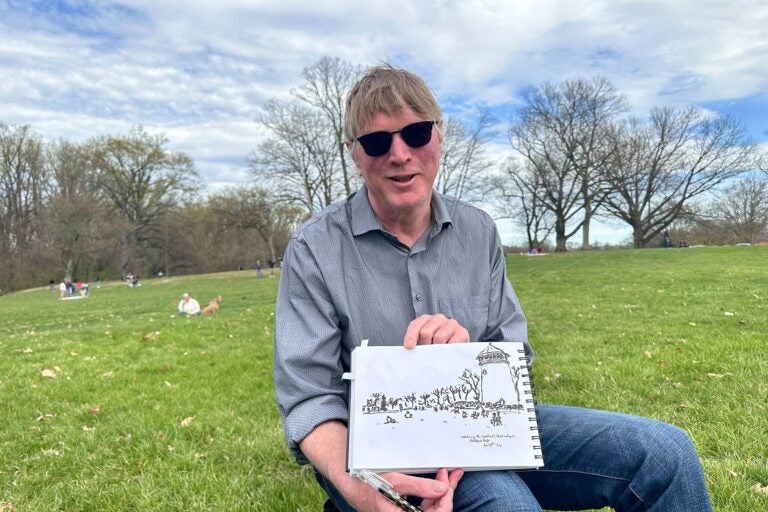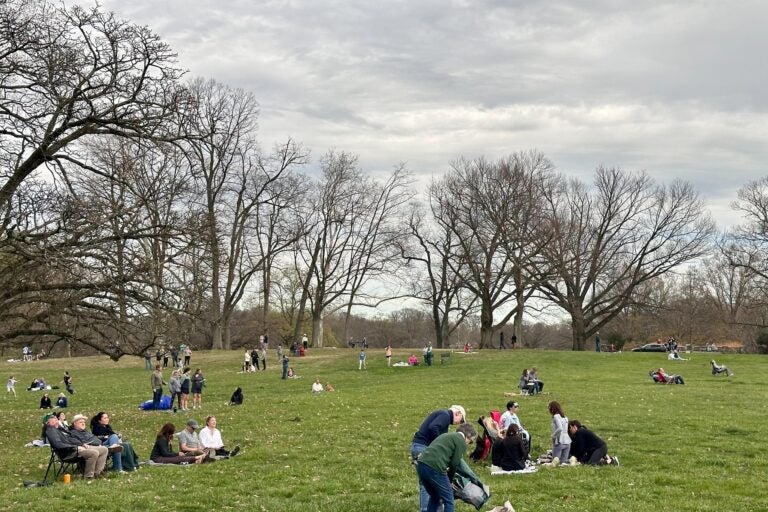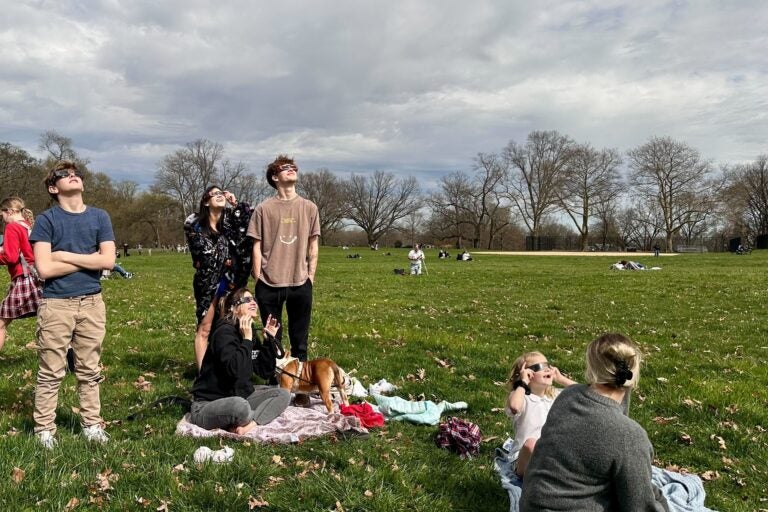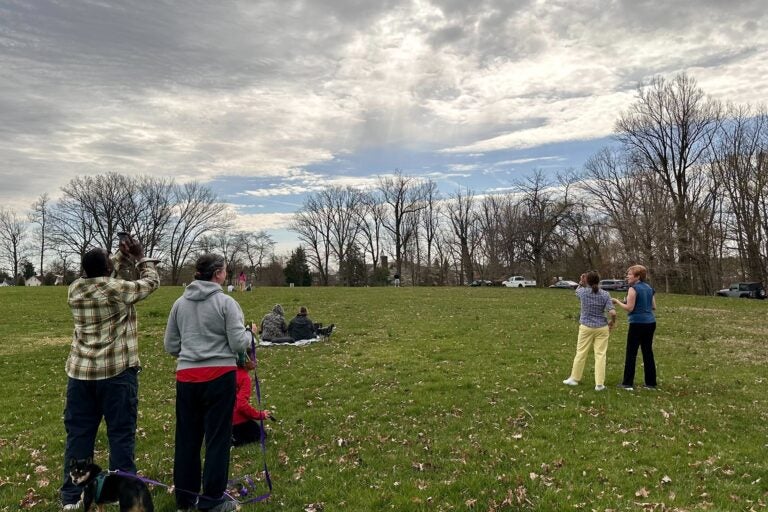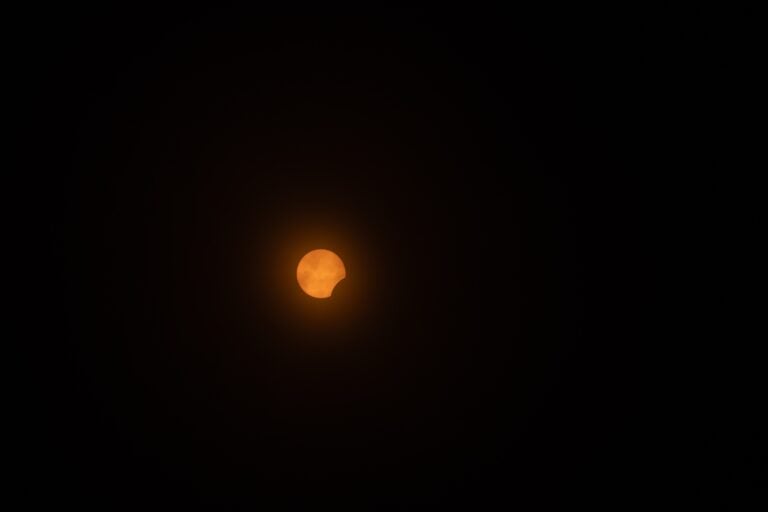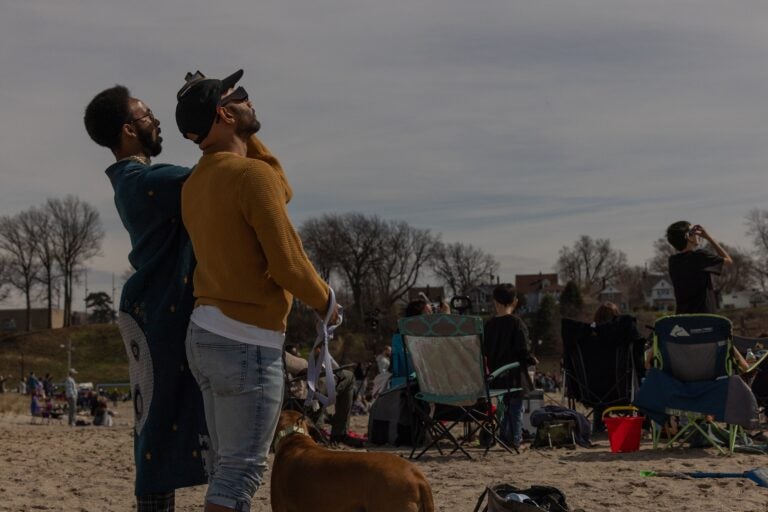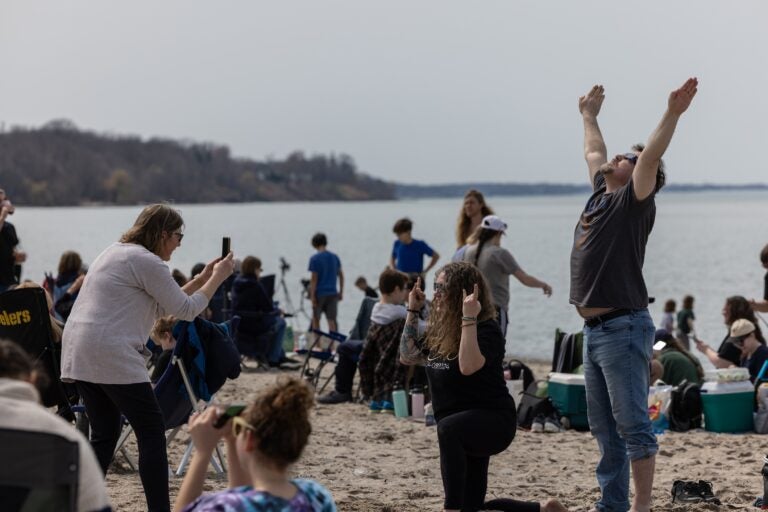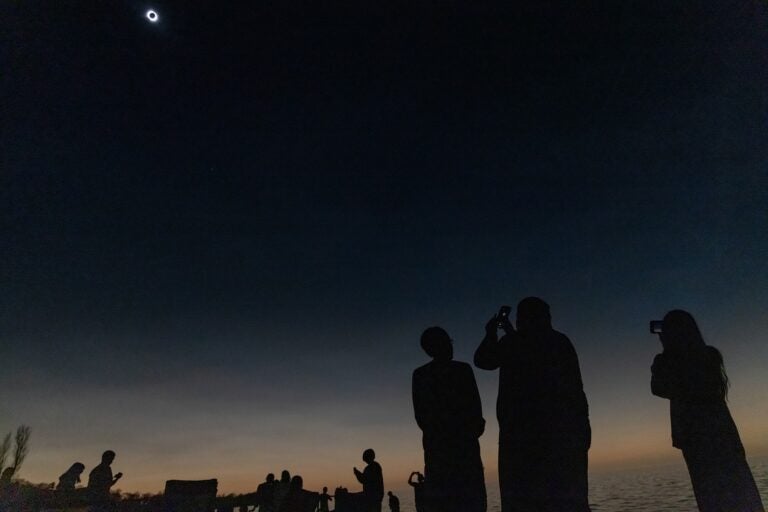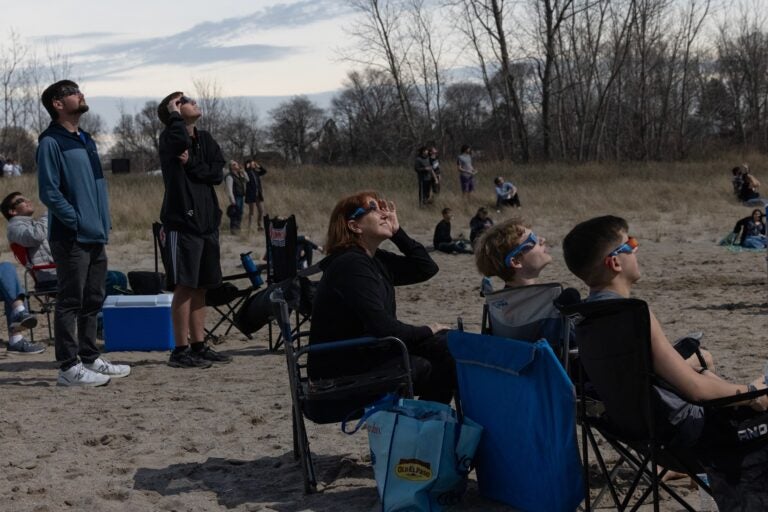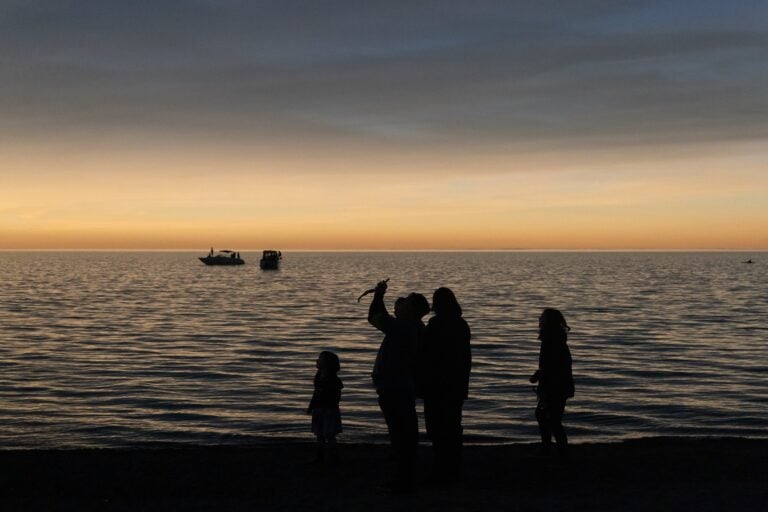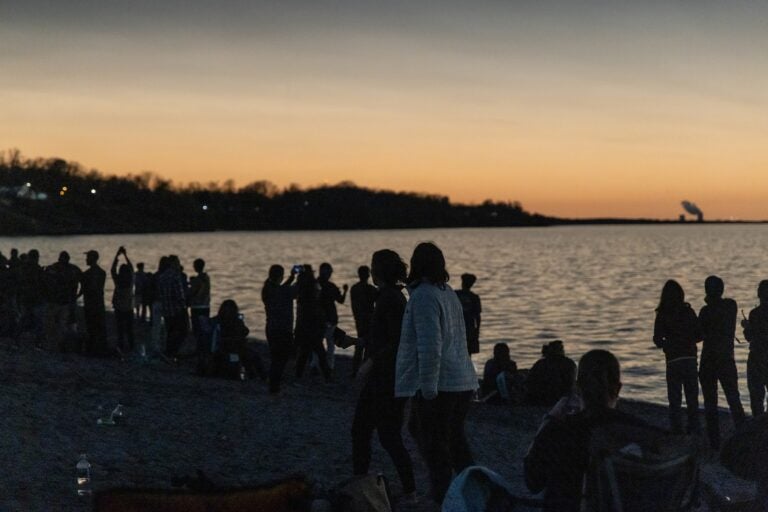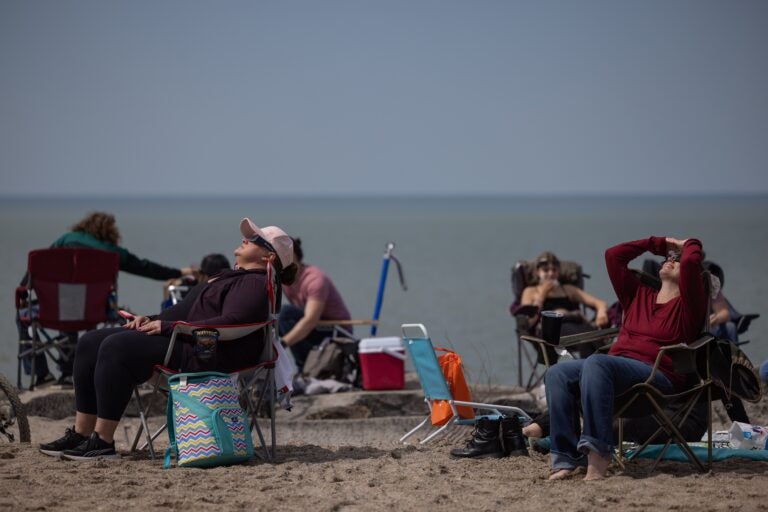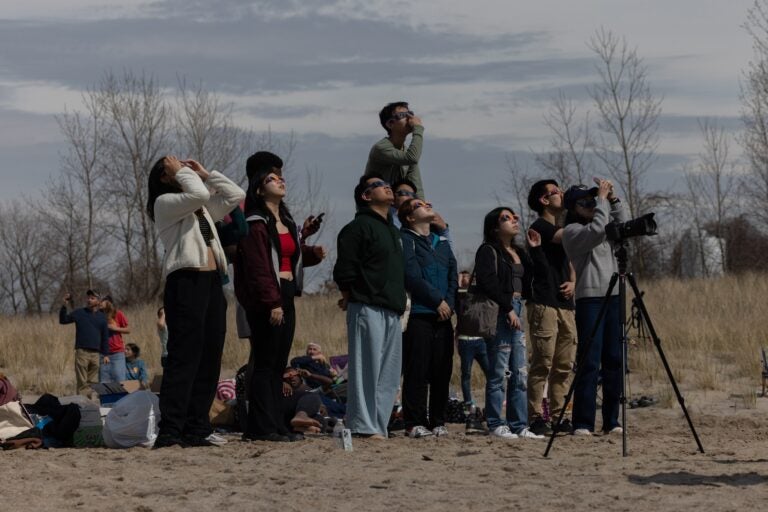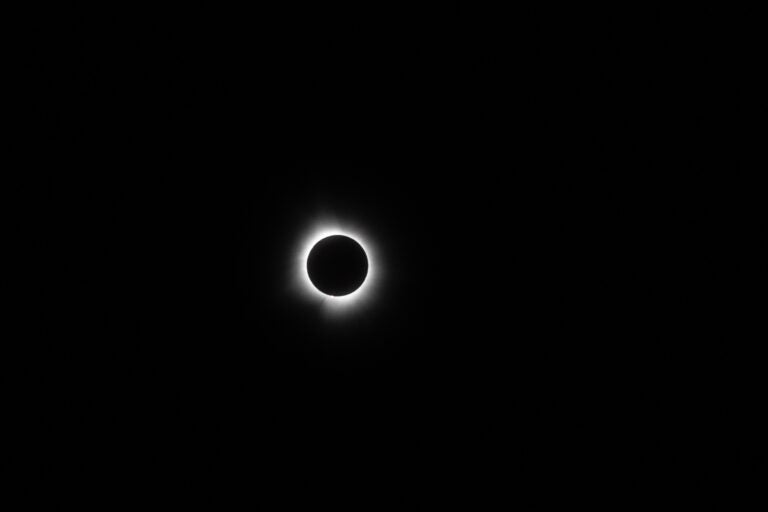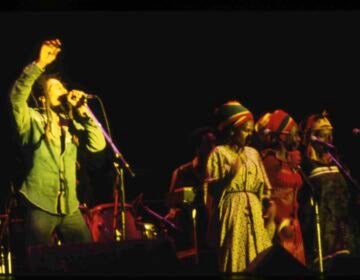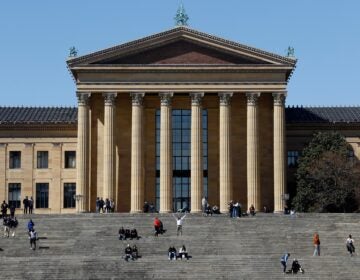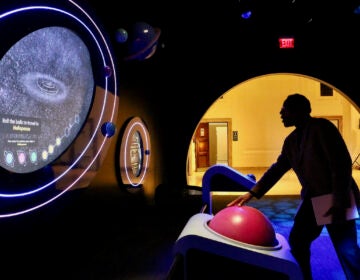Scenes from the solar eclipse: Clouds obscure the Philly region’s moment with the sun
Uncooperative weather during the eclipse could not darken the Delaware Valley’s celestial spirit.
Mother Nature may have been playing a joke on Philadelphia on Monday.
About 45 minutes before the peak of Philly’s 90% eclipse, the sun was shining through light clouds and haze. About 45 minutes afterward the sun was out again.
But for most of the time that the moon passed over the sun, dark cloud cover obscured the show.
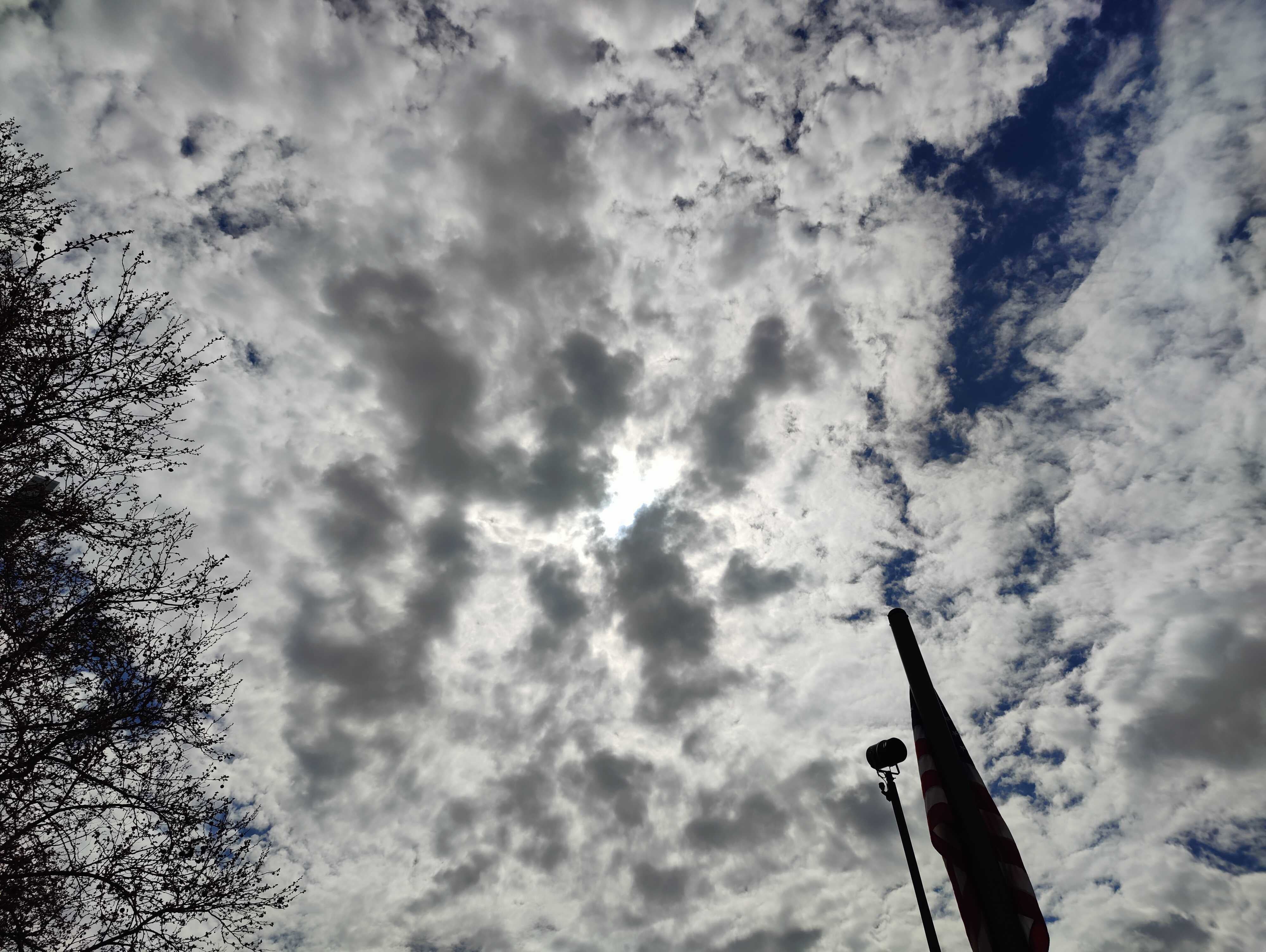
“It’s disappointing,” said Anita Pignataro, 82, who came out to the Parkway because she felt it may be her last opportunity to witness the celestial phenomenon. She kept scanning the sky wearing her dark eclipse eye protection hoping to catch a glimpse of a crescent sun.
Pignataro was bothered that she didn’t see the eclipse, but it was worth the effort.
“There’s a sense of community,” she said. “A sense of coming together.”
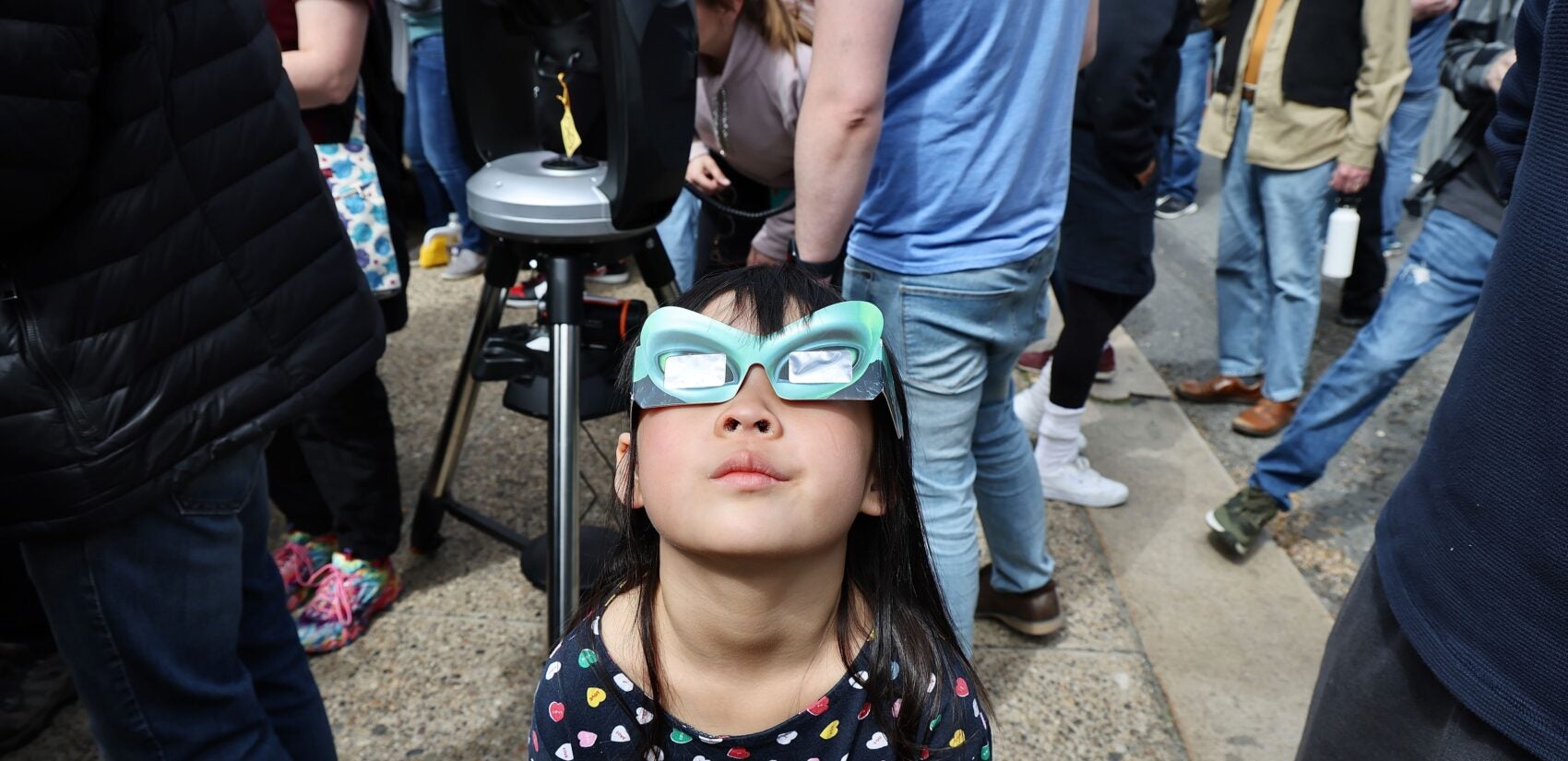
Pignataro was among the thousands on the Parkway who filled Logan Circle to see the eclipse, crowding the steps of the Franklin Institute, Shakespeare Park in front of the Free Library and the apron around Swann Fountain.
The Whetstones of West Philadelphia, Kehinde and Teresa, pulled their two daughters out of school for the afternoon to see it.
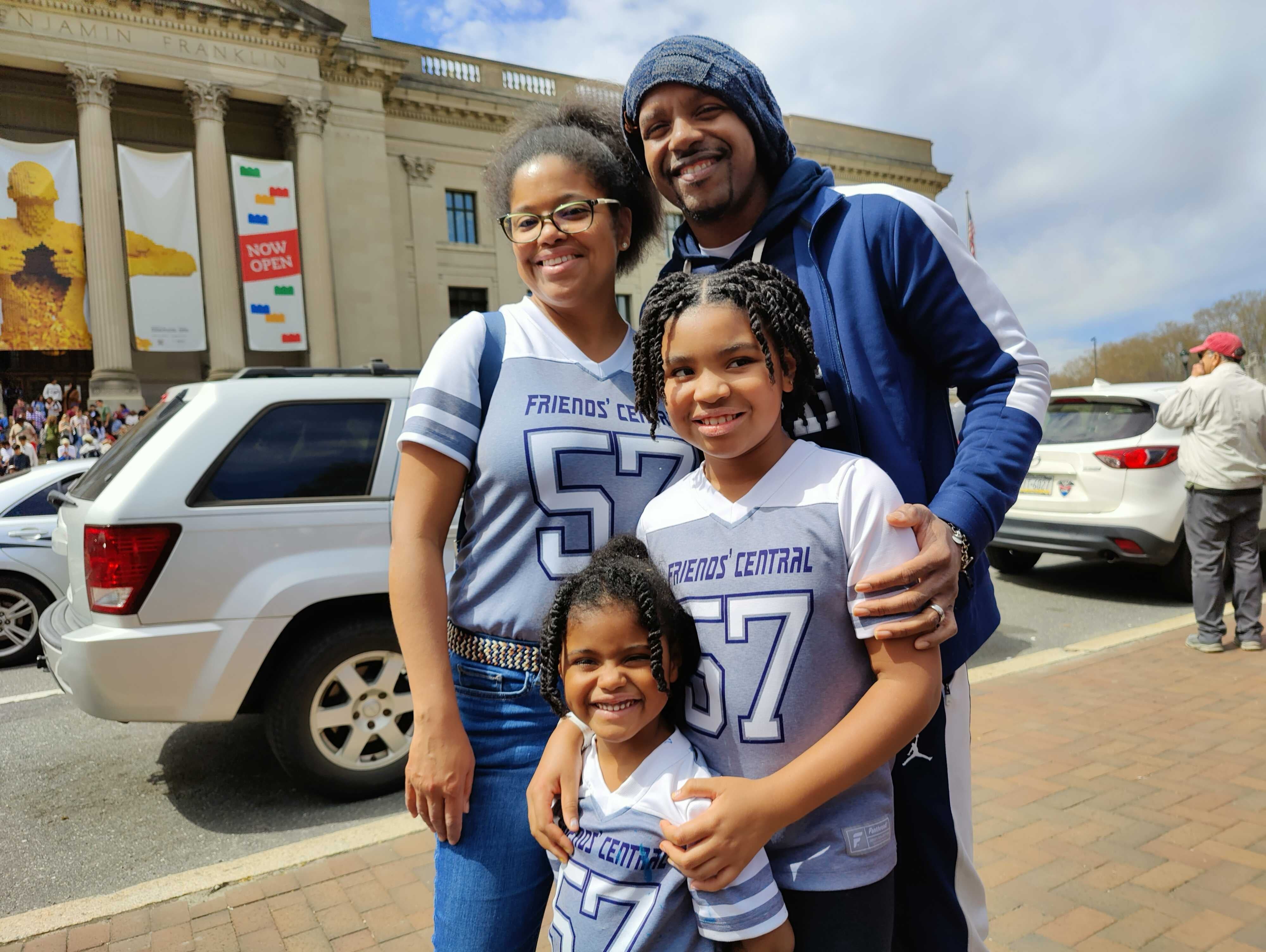
“It’s important to do it,” Teresa said. “And it’s important to do it as a family.”
The event in front of the Franklin Institute featured tents outfitted with semi-transparent tinted roofs so people could watch the sun without glasses, a few solar telescopes and small projection devices that safely reflected the sun through a series of mirrors.
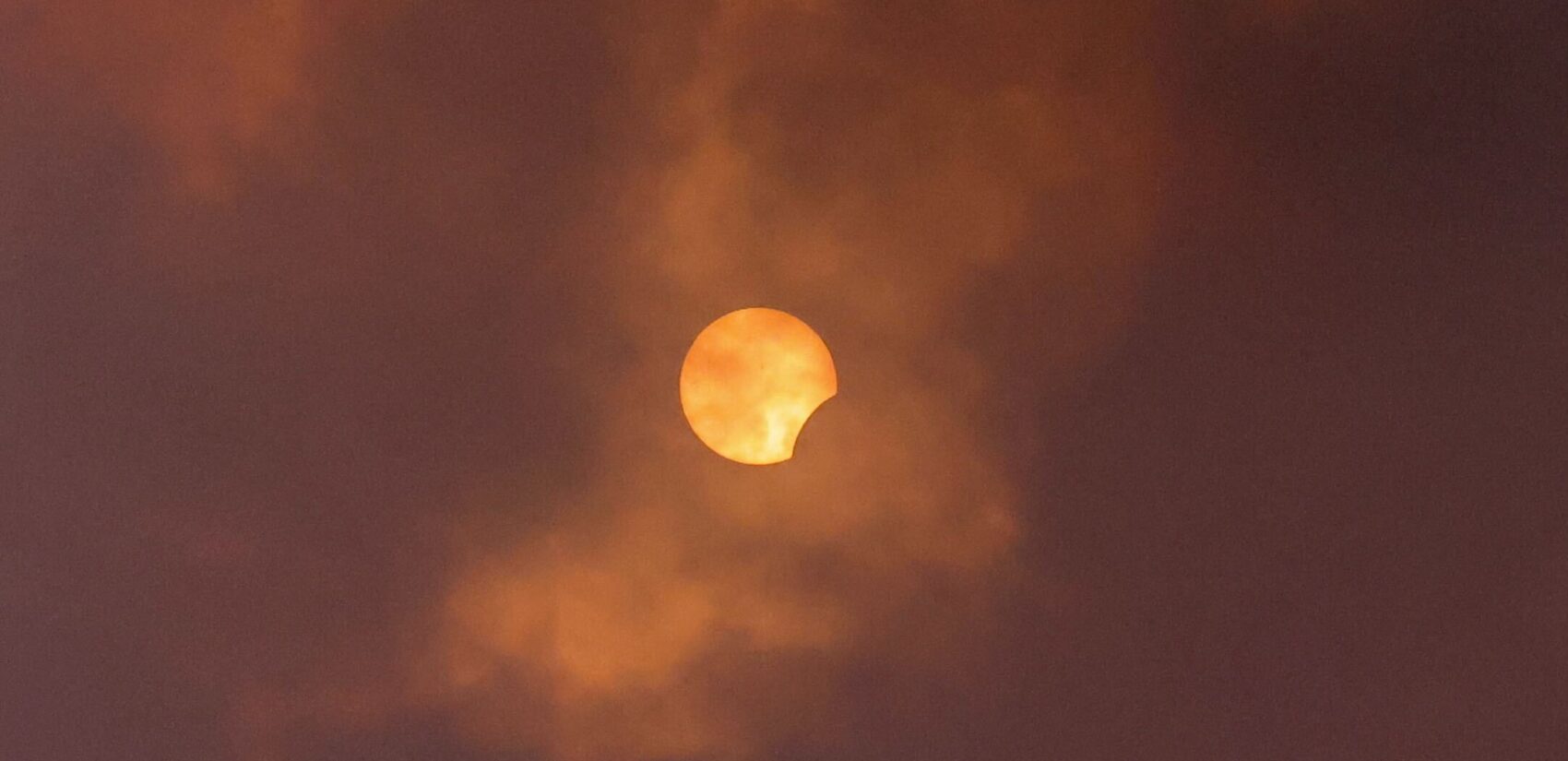
Several people set up their own telescopes on the Parkway to try to get a good look, and some even brought colanders from their kitchens to create a crude pinhole camera effect. However, those efforts met with mixed results.
The Franklin event was emceed by astronomer Derrick Pitts, who gamely described what was happening for three hours over a PA system, even when, at the crucial moment, the crowd could not see the sun for themselves.
“Even though there’s a little cloud cover right now, hopefully at your last view you saw there was a little bit of the sun covered by the moon on the lower right-hand side of what would be the five o’clock position,” Pitts told the crowd. “So we’re gonna hope these clouds continue to move through.”
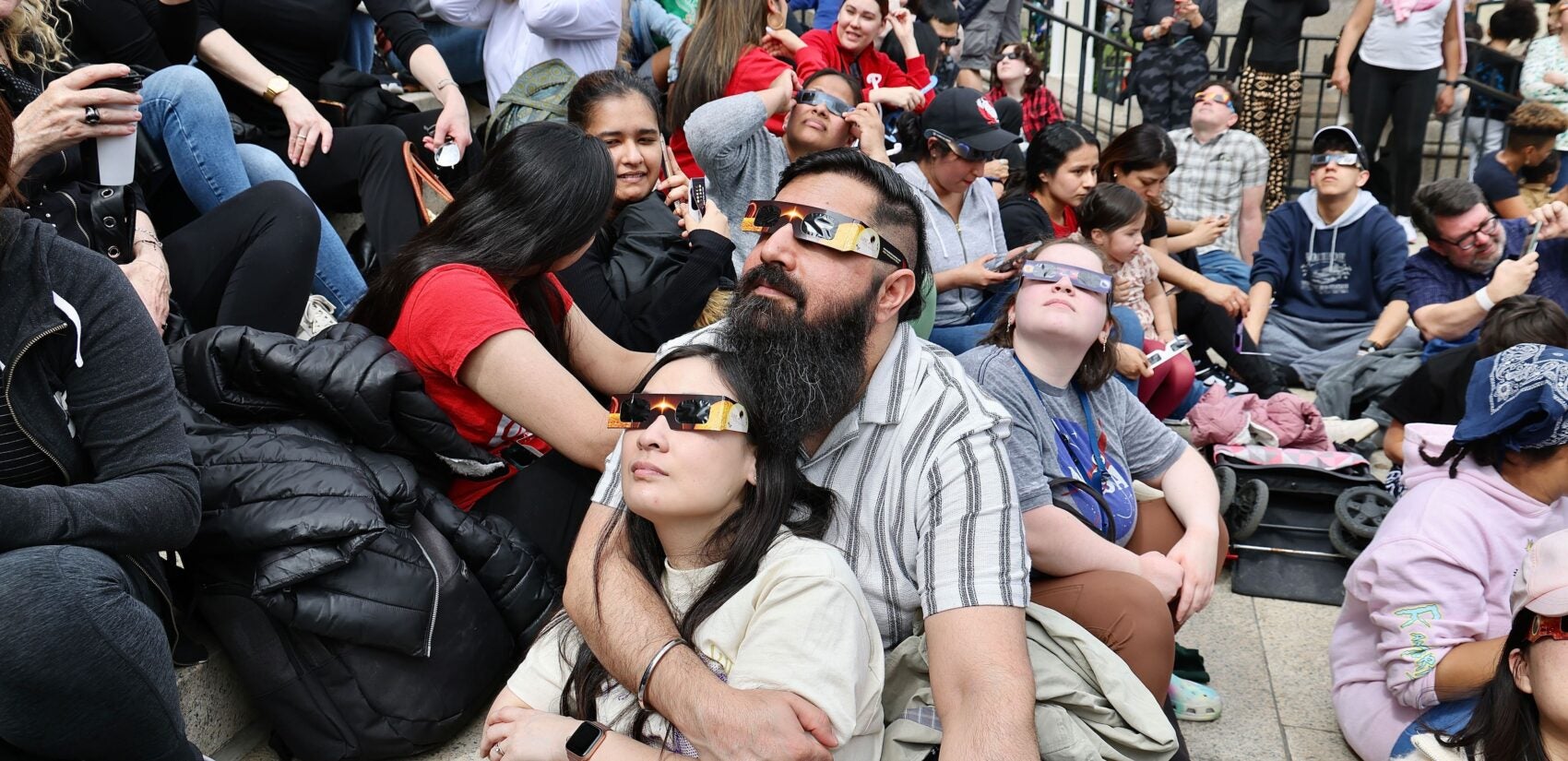
Pitts said an eclipse is not just a darkening of the midday sky, but a dramatic change in the entire environment. Animals are known to go quiet during an eclipse.
“The light that you still see isn’t doesn’t look like it normally looks,” Pitts said. “You can look around the horizon and see a ring of sunlight outside of the moon shadow. There are all these unusual things you never get to see that are all happening at the same time and creates this really ethereal experience.”
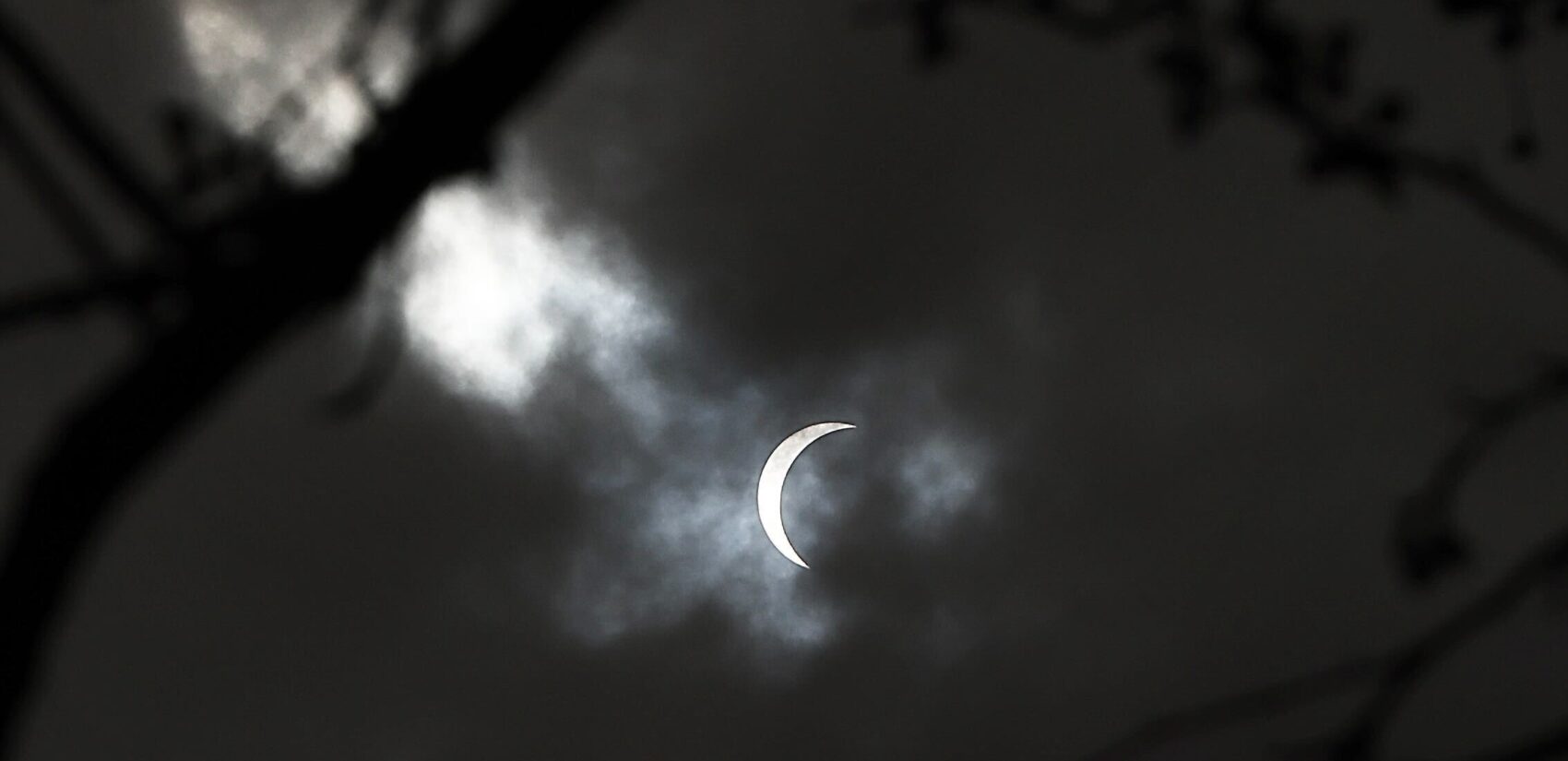
It was doubtful the crowd at the Franklin would have had an ethereal experience, even under the best weather conditions. A DJ created a party atmosphere by spinning records, Pitts regularly asked people to rotate through the observing tents to give other people a chance to see, and the Franklin Institute opened a beer on 20th garden for the occasion.
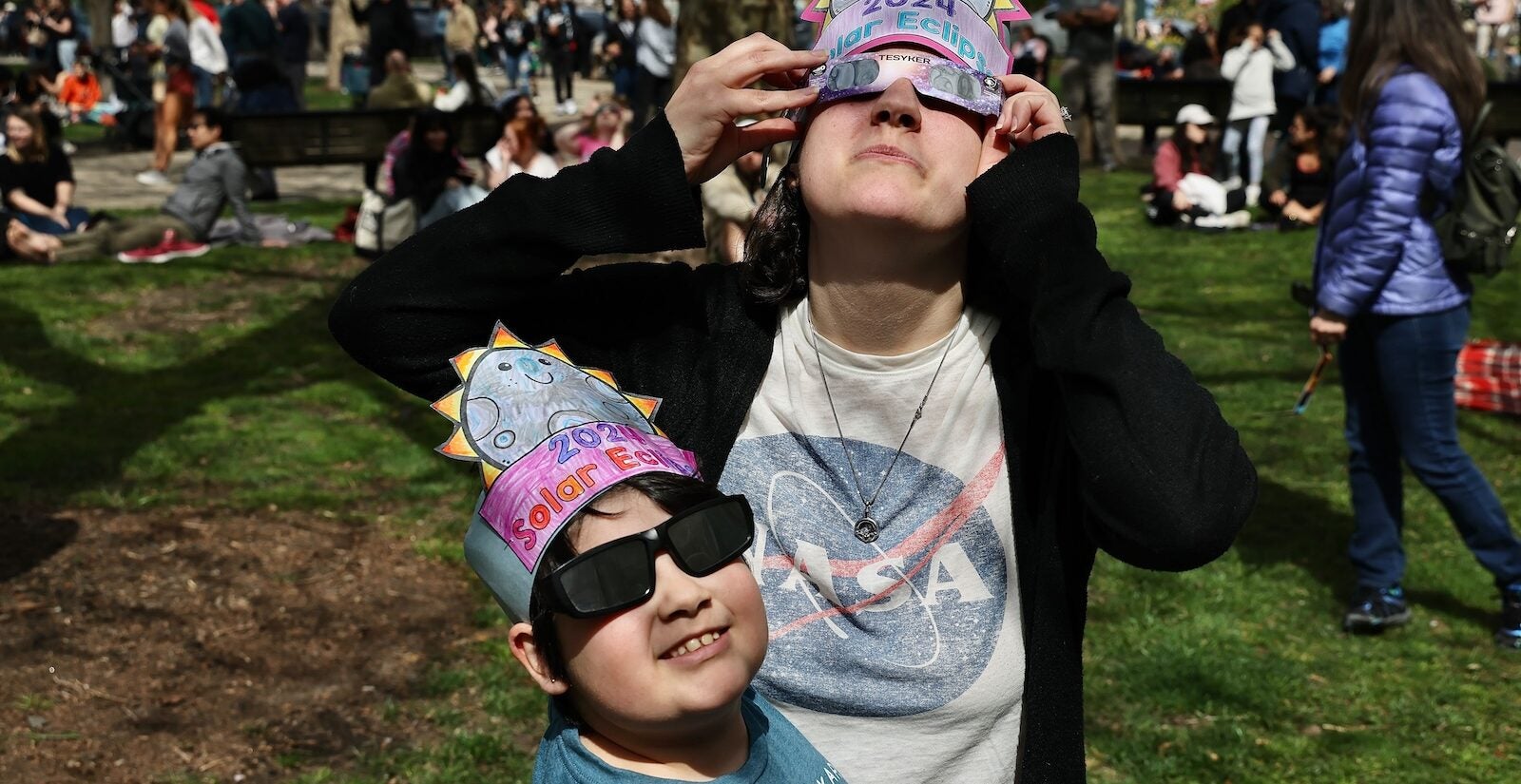
Kevin Stucker didn’t get to see the promised 90% eclipse through the clouds but said it was a good time nonetheless.
“Space is cool,” he said. “It’s a lot of fun. It’s important to come out to the community for rare opportunities like this.”
An eclipse on the scale of Monday‘s won’t happen again until Aug. 12, 2045.
In Delaware, finding solace in the sunshine
Under the vivid blue skies with scattered drifting clouds, nearly 100 people gathered at Rockford State Park in Wilmington.
The once-empty park transformed into a bustling scene as folks set up picnic spots and enjoyed the outdoors, relishing in the vibrant atmosphere of the day.
Wilmington artist Shakira Hunt and her dog Ginger were among the crowd, who took the opportunity to reflect on her life and how it has changed since the last eclipse in 2017.
“The last seven years have been a lot of very pivotal shifts and changes and life and just personal growth and I’m excited for whatever this next realm is going to be,” she said.
“[There’s] a lot of rebirth, a lot of shedding, a lot of letting go. It has been a very transformational and transitional period over the last two weeks,” Hunt added. “I think [it’s] just the energy of the eclipse season.”
Colleen and Christian Jackson, who also watched the eclipse in 2017, walked through the park in search of the perfect spot to people-watch and soak in the eclipse’s rays.
“It’s just a wonderful opportunity that doesn’t happen very often. We were here in 2017 and it was a lot of fun. It was really neat and a nice community experience,” Colleen said.

Saturdays just got more interesting.
WHYY is your source for fact-based, in-depth journalism and information. As a nonprofit organization, we rely on financial support from readers like you. Please give today.


